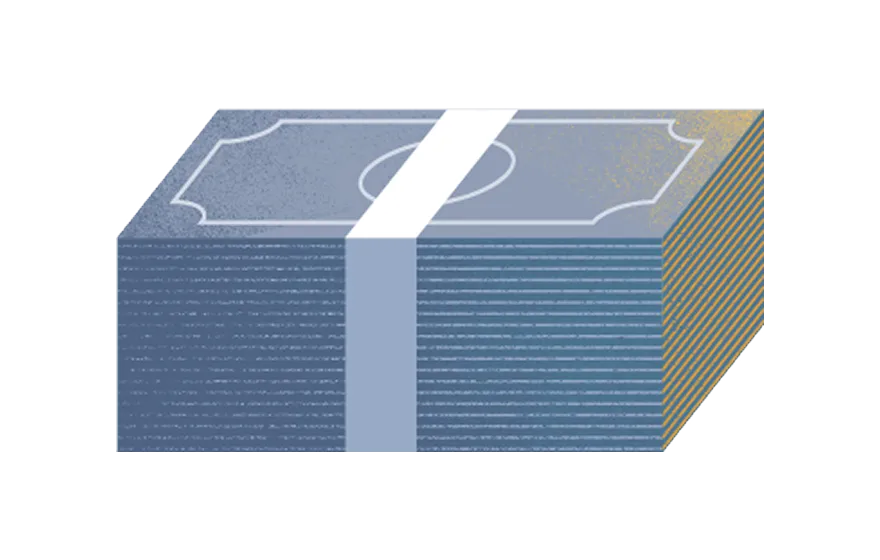If you have a lot of debt, you likely want to pay it off as soon as possible, while saving money on interest. Several debt repayment strategies can help you achieve that goal. We'll explore two common options: credit card refinancing and debt consolidation.
While these methods are similar, this post will explain the key difference between them. That way, you can choose the best path to debt freedom for you.
What is credit card refinancing?
Credit card refinancing typically involves transferring your existing credit card balances to a new credit card with a lower interest rate—often a 0% intro APR balance transfer offer. The goal is to reduce the amount of interest you pay while giving yourself time to pay off the debt.
Pros of credit card refinancing
- Lets you pay less interest on your credit card debt.
- A 0% APR introductory period gives you time to pay down your balance.
- Can simplify payments by consolidating multiple cards.
- No interest during the promo period helps reduce debt faster.
Cons of credit card refinancing
- You generally need good credit to qualify for more favorable rates and terms.
- Balance transfer fees can apply.
- The interest rate may jump after the promo period ends.
- Doesn’t fix the spending habits that caused the debt.

What is debt consolidation?
When you consolidate debt, you roll multiple debts—like credit cards, medical bills, or personal loans—into a single loan or monthly payment. The main goal is to simplify repayment and, ideally, lower your interest rate or monthly payment.
Pros of debt consolidation
- Can be leveraged for various types of debt.
- May help you get a lower interest rate.
- Can reduce your monthly payments.
- Paying on time may improve your credit score.
Cons of debt consolidation
- You may end up paying more interest over time.
- It won’t fix overspending habits.
- Some options come with fees.
- Good credit is often needed to get the best rates.
Types of debt consolidation
There are many financial products you can use to consolidate debt, including, but not limited to:
- Debt consolidation loan. A debt consolidation loan is a personal loan that you use to pay off your high-interest debt. You receive a lump sum and repay your lender in equal installments over the loan term.
- Home equity loan. A home equity loan helps you tap into your home equity, which is the amount your house is worth minus what you still owe on it. Typically, a home equity loan has a fixed interest rate and provides a lump sum that you can use to pay off other debt.
- Home equity line of credit (HELOC). A HELOC functions more like a credit card than an installment loan, typically featuring a variable interest rate. You can borrow what you want and when you want during the draw phase – up to your credit limit. During the draw period, you’ll make interest only payments. Then, during the repayment period, you’ll be responsible for principal and interest.
- Home equity investment (HEI). An HEI is another way you can leverage your home equity, but it doesn't have strict qualification criteria or require monthly payments like a home equity loan or HELOC. With an HEI, you receive a lump sum in exchange for a portion of your home's future appreciation, generally payable when you sell or refinance the property.
- 401(k) loan. With a 401(k) loan, you borrow from yourself, so you don't need good credit to qualify. However, you must follow your retirement plan's rules, can only borrow up to 50% of your vested balance, and generally must repay the loan within five years or the unpaid balance will be subject to income tax and an early withdrawal penalty (if you're younger than 59.5). Since failing to make catch-up contributions can significantly impact your retirement savings, it’s best to consider this a last resort or speak to a financial advisor before proceeding.
Credit card refinancing vs. debt consolidation
While both strategies can help you manage and pay off debt, they work differently and are best suited for different situations. Here’s how they compare:
Credit card refinancing:
- Involves moving credit card debt to a new card with a lower or 0% intro APR.
- Best for short-term credit card debt that you can pay off during the promo period.
- Typically offers 6 to 21 months of interest-free payments.
- Requires good to excellent credit to qualify for the best offers.
- May come with a balance transfer fee (usually 3–5%).
- Works only for credit card balances—not other types of debt.
Debt consolidation:
- Combines multiple debts (credit cards, loans, etc.) into one new loan.
- Best for people with multiple types of debt who want a longer repayment plan.
- Offers fixed monthly payments, often over several years.
- May be available even if your credit isn’t perfect.
- Can come with loan origination fees or closing costs.
- Can help simplify budgeting and reduce interest if you qualify for a lower rate.
How to decide what’s best for you
When refinancing credit card debt makes sense
Refinancing your credit card debt may be a good option if you owe a significant amount on your card(s) and want to reduce your interest payments, pay off debt more quickly, or both. This option is also best if you don't have any other unsecured debts.
When debt consolidation makes sense
Debt consolidation is likely a better bet than credit card refinancing if you have multiple forms of unsecured debt to pay off. For instance, you may be a good candidate for debt consolidation if you have two credit cards with balances, a personal loan with a high interest rate, and a medical bill from a recent procedure.
Frequently asked questions
What is the difference between debt consolidation and credit card refinancing?
Debt consolidation and credit card refinancing both have the same objective: reduce how much interest you pay on your debt. However, credit card refinancing applies solely to credit card debt, whereas debt consolidation can be used to pay off various forms of unsecured debt, including credit card debt.
Does refinancing a credit card hurt your credit?
Refinancing a credit card could have a negative impact on your credit. For instance, applying for a new credit card or loan results in a hard credit report inquiry, which may cause a slight decrease in your credit score. Plus, if you close your old credit card after the refinance, your score may drop due to a reduction in available credit, an increase in your credit utilization ratio, or a decrease in the average age of your credit accounts. However, if you repay the new debt as agreed, your credit score will likely rebound quickly.
Are consolidation loans better than credit card debt?
A consolidation loan can be better than credit card debt since it typically has a lower interest rate. However, if you don't repay the loan as agreed, your credit score could take a significant hit, and you may end up owing more than before you consolidated, due to interest and fees being added to your account.

Final thoughts
If you're facing a mountain of debt, you may wonder about the best way to pay it off. Credit card refinancing may be right for you if most or all of your unsecured debt is on credit cards. On the other hand, debt consolidation is probably a better choice if you have multiple types of unsecured debt to repay.
No income? No problem. Get a home equity solution that works for more people.
Prequalify in 60 seconds with no need for perfect credit.
Show me my offer
Frequently asked questions
.png)
Thank you for subscribing!
.webp)















